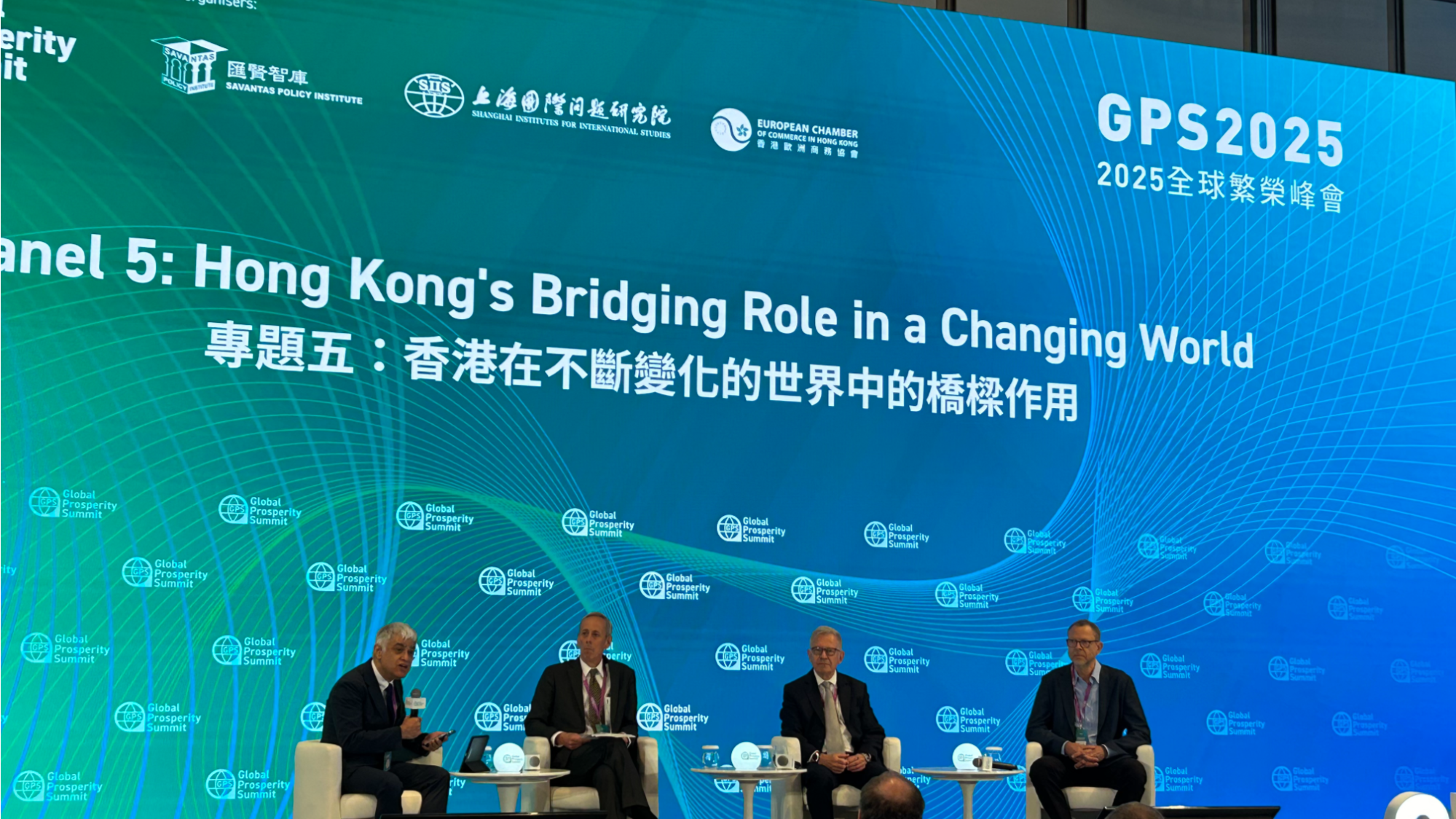
As global commerce contends with rising tariffs and other barriers, Hong Kong should leverage its longstanding position as an open market and free trade hub to bridge divides and foster partnerships, according to the Global Prosperity Summit on Wednesday.
During a panel discussion titled “Hong Kong’s Bridging Role in a Changing World”, Sherard Cowper-Coles, a British former diplomat and chair of the China-Britain Business Council, said that protectionism including tariffs is disrupting the global commerce system that has traditionally benefitted all parties involved.
For instance, under this system, foreign investment has played an important role in China’s growth over the past decades, while Chinese investment and technology have in turn contributed to global progress, he said.
READ MORE: HK’s accession to RCEP to fortify ‘superconnector’ role, forum told
What is happening now can be described as a “structural issue”, said Howard French, a professor of journalism at Columbia University. With the rise of new markets, traditional powers have become relatively less powerful and less wealthy, which has triggered a sense of anxiety within them, he explained.
Craig Allen, a former president of the US-China Business Council and a senior counselor of the Cohen Group, agreed that the world is moving away from the traditional practices based on World Trade Organization (WTO) rules.
But Allen said the demand for cross-border trade is still strong and Hong Kong could serve as a bridge between markets.
Allen cited Hong Kong Chief Executive John Lee Ka-chiu’s recent weeklong visit to the Middle East as an example, which he said demonstrated the city’s ability to act as a global representative in fostering partnerships with such “new and exciting” markets.
“Hong Kong’s extraordinary assets make it exceptionally well-placed at this time and in this world,” and these assets serve the world’s best interests, said Cowper-Coles.
As an example, he said, Hong Kong plays an important role in facilitating capital flows between the Chinese mainland and international markets, with more than half of the mainland’s outbound investments going through the city, and vice versa.
Despite its relatively small market — with a population of only 7.4 million — Hong Kong is a trade heavyweight, Cowper-Coles said. He added that trade between the United Kingdom and Hong Kong is nearly equal to that between the UK and Japan.
Allen echoes this view, saying that “Hong Kong’s strengths are undergirded by its economic openness and free trade spirit.”
“It is that openness, that willingness to trade with everyone, (and) that welcoming spirit to everyone that gives Hong Kong its real distinctive strengths,” he said.
READ MORE: Expert: HK strengthens global trade by connector, value-adder roles
He praised the city’s position in the Guangdong-Hong Kong-Macao Greater Bay Area (GBA) as another reflection of its vitality. He described the 11-city cluster as being “the most dynamic place in the world” from an innovation perspective, and “neck-and-neck” with Silicon Valley.
The experts also said they believe that Hong Kong’s bridge role is reflected in its ability to heal divides.
In the current international context, “We have to come back to the table again … the recent China-US trade talks are a good sign,” said Vikram Channa, vice-president of Warner Bros Discovery. In this process, the city is a bridge for the world to understand China, as there are still many misunderstandings and much misinformation, he added.
Contact the writer at irisli@chinadailyhk.com


